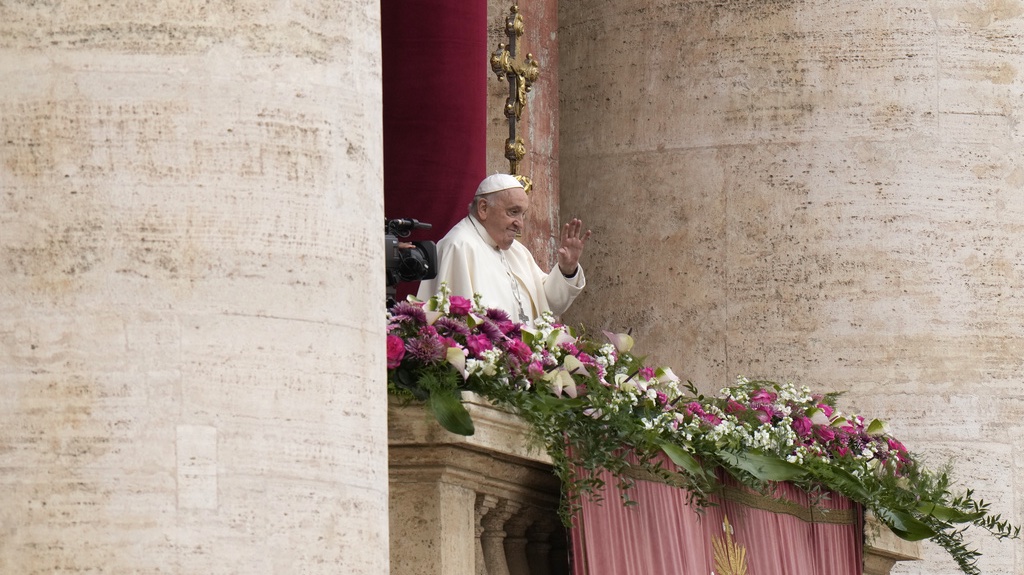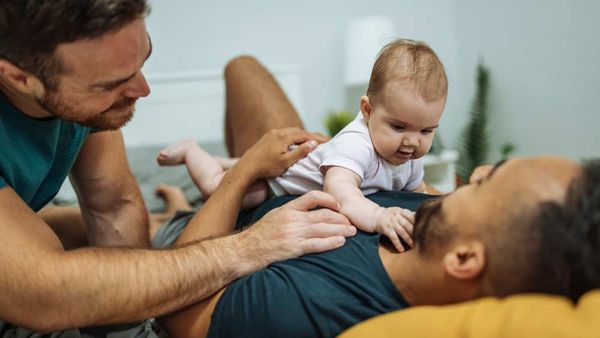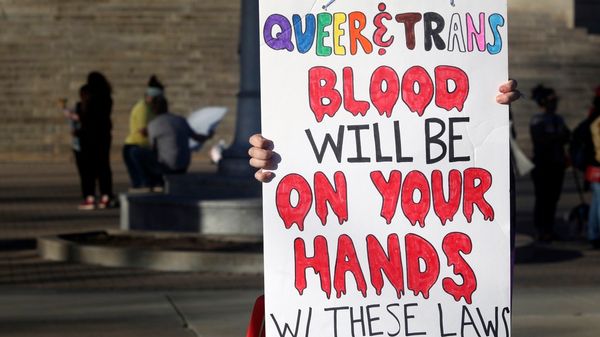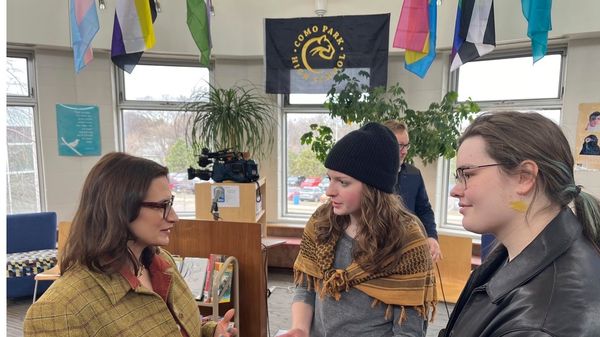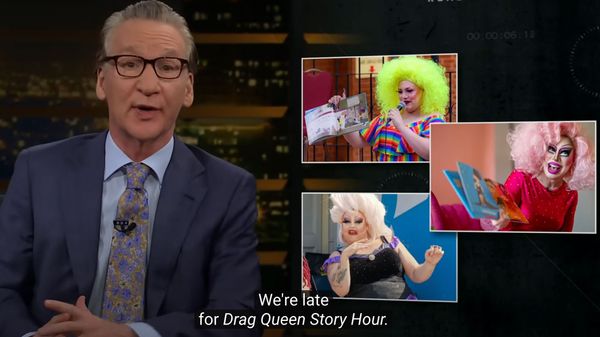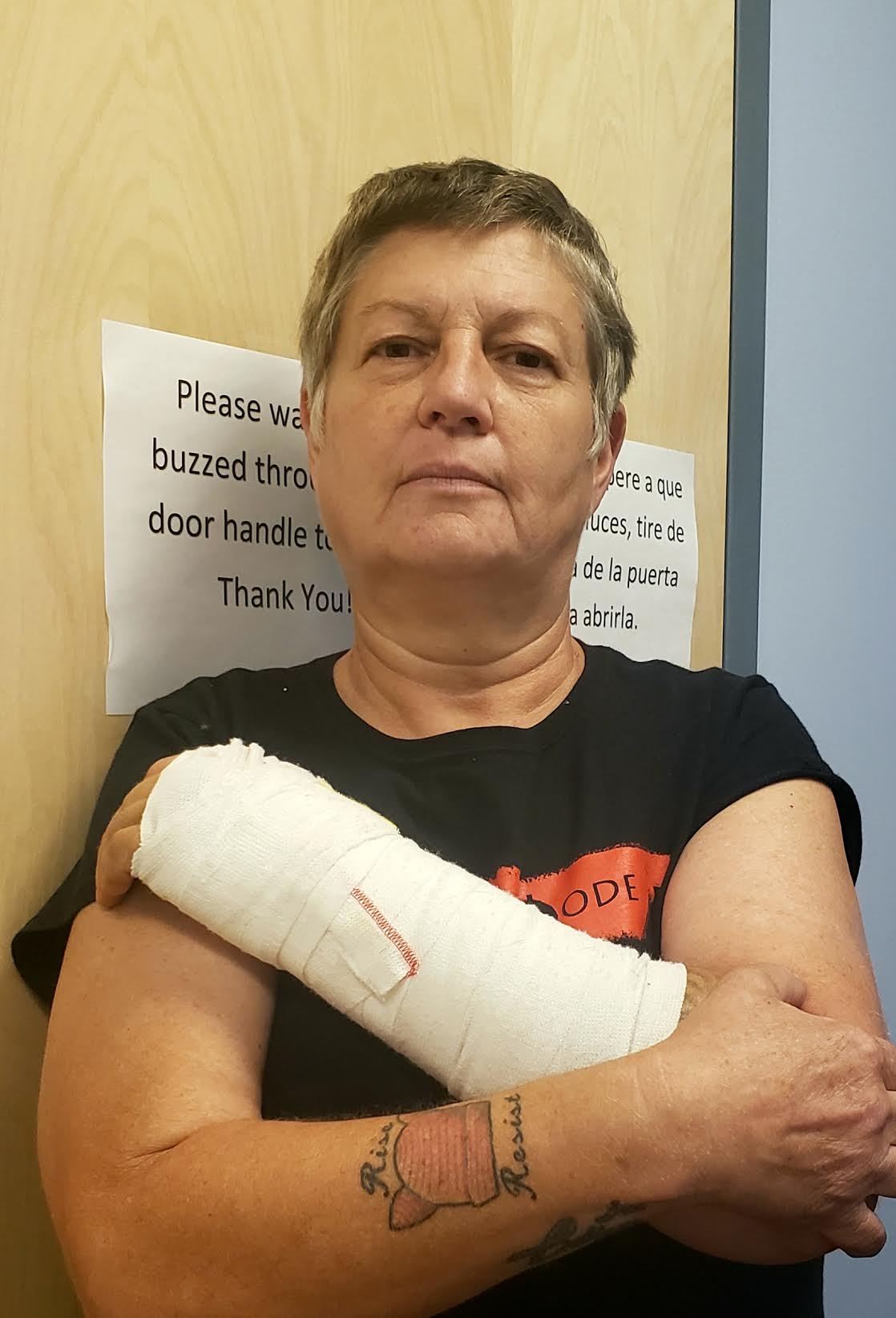
September 13, 2019
Boston Woman Alleges Injury by Police at 'Straight Pride' Parade
READ TIME: 7 MIN.
When a group with alleged ties to white nationalists called Super Happy Fun America decided to mockingly mirror Boston's long-running Gay Pride Parade, they went all in. They petitioned the city and received a permit to conduct their own so-called "Straight Pride" parade on August 31 along a similar route through downtown Boston used by the Gay Pride parade.
Unsurprisingly to some, the "Straight Pride" parade turned out to be a thinly-veiled Trump rally rather than an event celebrating the accomplishments and historical contributions of heterosexual people, or an occasion to boost straight visibility (which, in any case, is in full display in every facet of the culture as a whole).
Since the 2016 elections, fringe-right groups have begun targeting left-leaning cities such as Portland, Oregon for mass actions designed to provoke conflict. Following earlier right-wing rallies that drew scant attendance by supporters, but generated throngs of protestors – headline fodder for extremists who like to claim that their right and freedoms are being infringed upon – another such event was inevitably going to take place in Boston.
Though the chaos visited on Boston streets by the "Straight Pride" parade hardly rose to the level of violence and chaos that the nation witnessed two years ago when white nationalists stormed the city of Charlottesville, Virginia, two years ago – violence that reached a peak when one white nationalist plowed a car into a group of counter-protestors, killing a woman and injuring dozens of people – the event has roiled the city.
Even with enormous police presence and security barriers separating the marchers from the counter-protestors who lined the route, there were 36 arrests were made at the event, with nine people being charged with assault on police. (Those charged with other offenses, such as "disorderly conduct," saw their charges dropped by the Suffolk County District Attorney, though Boston Municipal Court Judge Richard Sinnott tried, and failed, to stop that from happening.) The city council is now considering banning the wearing of masks, citing the practice of facial obscurement by anti-fascist activists, some of whom carry out violent actions at protests. (It's unclear what, if any, additional measures the city council proposes to adopt to deal with right-wing groups like the Proud Boys, which have been known to train in mixed martial arts and engage in street fights at protests and rallies.)
Despite the possibility for conflict and personal danger, Sandra Pelkie knew that she had to be one of the counter-protestors who would greet the parade. Pelkie, who is straight, described herself to EDGE as someone who has long been an advocate for, and ally to, the LGBTQ community, as well as for other marginalized
communities.
"I've been fighting for rights since the [Harvey] Milk days," Pelkie told EDGE. "I took care of my friends with AIDS because the hospitals wouldn't."
Pelkie, who lives in Brookline Village, headed to downtown Boston on Saturday, August 31, the day of the event. As she walked through the crowded streets, making her way toward Government Center, she found herself in the company of several other people, including a heterosexual couple that was there in support of the "Straight Pride" and a young woman who was, like Pelkie, there to protest the event.
Though they were there for different reasons, there was no real tension between them.
"We were bantering back and forth," Pelkie recalled.
But things changed, Pelkie said, when the woman attending in support of the "Straight Pride" event suddenly threw ice at the young woman who was there in protest. Then, Pelkie recalled, the "Straight Pride" supporter "started after the girl like she was going to stab her."
Though Pelkie did not see a weapon or an actual stabbing, she said, nearby police reacted in force. "Thirty, forty police jumped over the barrier" that the city had placed to keep the parade's participants and the protestors separated from one another, Pelkie said. The woman's male companion also became involved, jumping onto the young woman Pelkie feared had been stabbed. At that point, Pelkie intervened, fearing for the young woman's safety: "I pull this kid off of the girl," she related, "and I have him in a chokehold." A police officer instructed her to release the man, telling Pelkie that he would take over.
But then Pelkie saw that the woman who she said initiated the confrontation was "walking away nonchalantly." Pelkie tried to inform a policeman about this, telling the officer, "There she is, there's the girl who attacked her – she's walking away!"
The officer reacted, Pelkie said, by assaulting her.
"All of a sudden the policeman grabbed my head, shoved me backward onto the sidewalk, and I shattered my arm," Pelkie said. Then, she continued, "he got on me, pressed his knee into me, and started punching me in the head."
Pelkie said she cried out, "What are you doing?" and the other officers on the scene urged the policeman to stop. "They must have seen that I'm an old lady," said Pelkie, who is 57. "They were shouting, 'Get off of her! Get the fuck off of her!'"
The officer eventually did get off of her, at which point Pelkie saw that her wrist was now bent at an alarming angle. Not only was her arm broken, but bone was jutting through the skin. Pelkie had sustained a compound fracture.
Bystanders had started shouting in response to the incident. "They were chanting 'Name and badge!'" Pelkie recalled.
But the incident did not end with any exchange of information such as a name or a badge number. Instead, Pelkie said, the group of police officers – her alleged assailant among them - simply walked away and melted into the crowd.
"The reason I am shocked is, there was no violence going on when I went over to point [the woman] out to them," Pelkie told EDGE. "You want to push me and say get out of the way like they normally do? That's one thing. But to send me flying, break my arm, and then start punching me?"
Bystanders suggested calling an ambulance, but it was clear that the ambulance would have a difficult time reaching her on the crowded streets. Pelkie, in a state of shock, began walking, thinking she would make her way to Beth Israel Hospital. Along the way she encountered a trio of medics she said were "walking the parade." They put her arm in a sling and told her to get to the emergency room. Pelkie took the T to Brookline Village and phoned her neighbor to meet her at the station; the neighbor then drove her to the hospital.
While waiting for medical attention, Pelkie contacted the Boston Police Department to report the incident. They wanted to speak to the hospital's security personnel, Pelkie recalled, but then when she asked a Beth Israel security guard why that would be necessary, he told her that the Boston police would want the hospital's security staff to take her statement. Pelkie says she told the officer on the line: "No security guard is taking my statement. I want a police officer here now." A while later, a sergeant from the Roxbury station arrived to speak with her. He took her statement and told her that Internal Affairs would send someone to speak with her.
Several days later, Internal Affairs followed through, sending a detective to hear Pelkie's account. "He asked how long I'd been fighting for the gay community," Pelkie said. "I started getting vocally involved in the '70s – people were getting killed. Fenway was notorious for gay bashings and killings."
In the 1980s, Pelkie found herself taking a role in efforts to care for people living with – and dying from – the virus after seeing how AIDS patients were treated at the hospitals.
"They'd have them in locked-down rooms and they would wear these NASA suits" when interacting with the patients, Pelkie recalled. When she visited a friend in the hospital and found him bloody from having torn out his IV and lying in his own waste, she decided to take him in and care for him at her home. From there, Pelkie became involved in organizing outings for AIDS patients. "We went to the opera," she exclaimed. "Imagine! Me! At the BSO!"
Added Pelkie, "It was all about giving them life before death took them."
More recently, Pelkie attended celebrations in New York City for the 50th Anniversary of Stonewall. "We've got a long way to go," Pelkie said, "but we've come a long way."
Pelkie had originally been scheduled for a follow-up meeting with the officer from Internal Affairs, but she required surgery to address the injury to her arm. That meeting has been postponed, she told EDGE.
EDGE sought comment from the Boston Police Department's media relations staff but had received no comment at the time this article was posted.
Media reports have said that four Boston police officers suffered non-life threatening injuries, though details on just what sorts of injuries those were have been scant. For Pelkie, the question is how badly the compound fracture she says was the result of being assaulted by an officer is going to affect her life.
"What pisses me off and saddens me so much," Pelkie told EDGE, is that "I have a charity that I started last year called Children and Families on the Border. I pack a 30-foot truck with supplies [to take] to the refugees on the border, and I stay for a while, volunteering. I can't drive, and I was supposed to leave Sept 1st."
Another major consequence of the injury is that it has derailed her plans for a new job. A former house manager, Pelkie was about to start a new position as an executive chef "at an upscale assisted living in Brighton – and now that's shot to hell," she said tearfully.
Pelkie fears that "I'll never use my arm again" as fully as she had before, "and all the things I like to do, like gardening" might be much more difficult for the rest of her life.
"The surgeon told me that it [the surgery] went bad, real bad," Pelkie said.
Pelkie is considering bringing suit against the city – but not to enrich herself, she said. Rather, she intended to donate any compensatory monies to charity. "The whole thing was wrong," Pelkie said. "And they were so aggressive."
Pelkie added, "Please ask your readers, if anyone had photos or video of what happened to me, get in touch."

